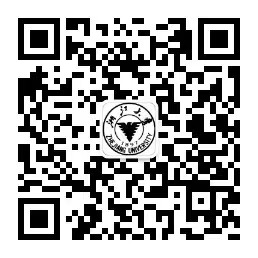时间:2019年6月4日晚18:30
地点:东五306
基于语料库的(NP1)+有+NP2+VP模式研究
聂淑庆
摘要: “有”字句是现代汉语中最复杂的句型之一,有基本式(前段A+有/没(有)+后段B)和延伸式(前段A+有/没(有)+后段B+后续成分X)两种1,句子中各成分联结所表现的意义复杂,增加了该类句型研究的难度。限于篇幅,本文研究的对象是以“有”为谓语动词的“有”字句延伸式中后续成分为动词以补充说明后段的句子:“(NP1)+有+NP2+VP”。本文用模式语法的方法观察110万词现代汉语平衡语料库口语语域中该结构各组成部分的词项的用法及其语义分布的关联,归纳出(NP1)+有+NP2+VP的模式,对NP1、NP2和VP进行语义聚类,发现该类“有”字句的用法以及语义分布之间的特点和规律,证实前人对该类句型归纳的一些观点,也为对外汉语教学以及汉语“有”字句的研究提供新的视角。
关键词:“有”字句;(NP1)+有+NP2+VP;模式语法;语义聚类
基于语料库的我国少数民族语言立法研究
康俊
摘要:少数民族语言立法在少数民族聚居区分布不均,其中多为自治区政府制定,而在自治州和自治县,立法文件较少。本文通过自建语料库的方法研究现有的少数民族语言立法文件,发现政府立法倾向集中在重视教育、规划财政、保护文化、保证就业四个方面。以民族团结和民族平等原则为框架,分析政府立法倾向的合理性,旨在对未来少数民族语言立法方向提供参考。
关键词:语言立法;少数民族;语言政策;语言规划;语料库
Differentiating critical thinking dispositions of newly-enrolled EFL undergraduates and postgraduates through an SVM approach
魏越尔
Abstract: This study investigates the degrees of differentiation in integrated and dimensional CTD performance between newly-enrolled undergraduates (NEUs) and newly-enrolled postgraduates (NEPs). One hundred and twenty-two EFL students were involved in the assessment of CTD using the Chinese version of the Critical Thinking Disposition Inventory. The support vector machine is first conducted in the critical thinking research field. The results revealed the strongest and weakest dimensions of CTD; the specific degree of differentiation in the integrated and dimensional CTD performance between NEUs and NEPs. Of the 70 features, 31 features were selected as an optimal set to determine the collective effect on differentiating CTD performance; in addition, the two dimensions of systematicity and truth-seeking were the top two dimensions with strong contributions to the difference. This study might have implications for the cultivation of critical thinking within English language learning and teaching.
Key Words: critical thinking dispositions; EFL students; support vector machine; SVM-RFE
The Effect of Reference Standards on the Use of Vague Quantifiers
王淏淏
Abstract: Vague quantifiers, including quantifiers of frequency(like ‘often’, ‘occasionally’) and quantifiers of amount/number(like ‘few’, ‘many’), always need certain reference standard when they’re used. This study tries to testify that average level (including inter-individual and intra-individual) and limit value are two types of these reference standards, also, the subjective expectation can be a reference standard when the context is not so objective. The priority of the above four reference standards is another focus of the study. Lastly, there will be an experiment to contrast the effect of vague quantifiers as rating scales in questionnaires with that of recommended alternative.
Key Words: vague quantifiers; reference standard; context; quantifiers of frequency
Majority Means Mighty: Politicians’ Use of WE
Forecasts and Explains Election Result
宁韬
Abstract: This study aims to demonstrate that politicians’ use of ‘WE’ (all forms of the first person plural pronoun) foretells and explains the election result, which reflects a winning principle in the election “Majority Means Mighty”. Taking four US presidential election as an example, this study first quantifies referential scope and compares candidates’ use of ‘WE’ by measuring three indicators in campaign speeches. The result indicates that all candidates consciously strove to apply “Majority Means Mighty” principle by manipulating ambiguous ‘WE’ to win votes but victors had a better performance. Victors used more ‘WE’ with wider referential scope. In this way, they constituted identity as a leader to win supports and acted as a member of various social groups to build a larger and more stable coalition with the majority of voters. This study has a practical implication that linguistic factor ‘WE’ can be a robust predictor of the election result.
Key Words: the first person plural pronoun; coalition; election forecasting; campaign speeches
热忱欢迎广大师生积极关注和参与!
外语学院研究生科
外语学院研究生会
2019年6月4日



